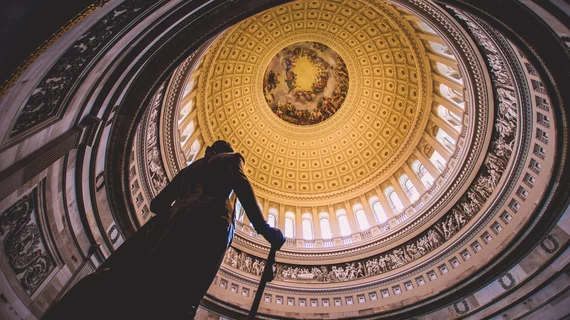American College of Radiology opposes focus of US House bill aimed at increasing imaging price transparency
The American College of Radiology on Wednesday said it opposes proposed legislation requiring hospitals and other providers to disclose the consumer’s upfront cost for X-ray, MRI, CT and other exams.
U.S. Rep. Mike Carey, R-Ohio, introduced the Imaging Services Price Transparency Act July 25, hoping to better inform patients about services provided by the specialty. If approved, the rule would take effect on Jan. 1, 2025, establishing a list of “at least 50” shoppable services for which providers must publicly disclose pricing on their websites.
“Healthcare costs are skyrocketing across America,” Carey said in a statement shared July 25. “Our legislation makes it easier for consumers to know in advance the cost of an X-Ray or CT scan. This will go a long way to ensuring that hardworking Americans are not blindsided by medical costs.”
But ACR contended that, as proposed, the bill prioritizes pricing over quality as the primary factor in selecting imaging services. It believes patients also should be able to shop based on factors such as facility accreditation, whether the equipment is updated and well-maintained, and the skills of radiologists interpreting their exams.
“The college believes there are adequate price transparency policies in place and medical service prices will continue to be available through existing policies,” the trade group said in a statement. “ACR is concerned that the Imaging Services Price Transparency Act will result in additional administrative requirements that do not actually achieve price transparency goals.”
The proposal tasks the Health and Human Services Secretary with creating the list of specific imaging services targeted and other details. Providers would be required to disclose the discounted cash price for imaging (or the gross charge if one does not exist) and potentially the deidentified minimum and maximum negotiated rate in effect between them and health plans.
HHS also would establish a process to monitor compliance. Under the proposed parameters, providers would have 45 days to submit a corrective action to comply with the rule. If they still fail to comply after 90 days, the HHS secretary may impose a civil monetary penalty in an amount “not to exceed $300” for each subsequent day. Authorities also may waive or reduce the penalty if they determine it would result in a “significant hardship,” according to the text of the rule.
The proposal is part of the House Ways and Means Committee’s larger Health Care Price Transparency Act of 2023, intended to lower costs in the industry. ACR said it continues to work with the committee to find a solution that “accomplishes the goal of transparency without adversely affecting the public’s access to timely and quality imaging services.”
“ACR staff are encouraged that this mutual goal can be reached as meetings with the committee prior to introduction yielded a three-year delay to the implementation date from the original draft,” the college said in its announcement.

